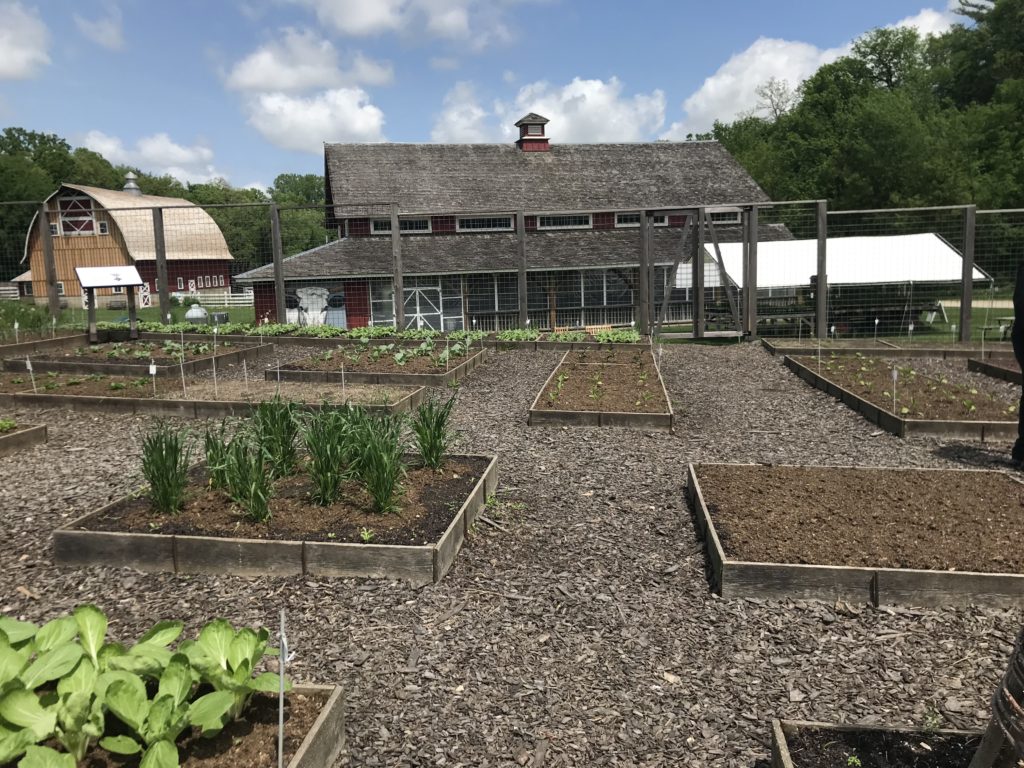
Today we visited the heritage farm where the seed savers organization is housed. I had learned a bit about the seed savers and its mission in my sustainability class last year, but I still found that the visit was interesting and informative. When we first arrived, we headed up to the fields to do some weeding. After about two and a half hours weeding we headed back to our home away from home (our twelve-passenger van). Covered in many layers of sweat, mud, and grime we headed over to a local co-op for lunch and a tour. After we finished eating, we were met Nate who gave us a tour of the grocery store. The co-op focused heavily on giving back to their members (investors) and supplying local healthy foods. While this is a noble cause, I don’t think it is very sustainable because there are very little profits given to the actual store and workers if all revenue is being funneled back to the members. In order to have money to bay for the basic necessities for running the co-op, maintenance, workers, electrical bills etc., the price of the products is quite high. As more grocery stores start meeting the need of the consumer for healthy, local, organic food, people will no longer be willing to pay the outrageously high prices of co-ops like this one.
After our visit to the co-op, we hauled our smelly selves back to seed savers for a general tour of the organization. We were lucky enough to meet one of the founders of seed savers, Diane. I thought the idea of preserving organic, non-GMO seeds was very noble and worthwhile. As these seeds are made into hybrids and chemically altered, we lose the old seeds and their history. I appreciated the seed savers mission to record the stories of the seeds and how they were passed down from generation to generation as well as the happy memories that accompanied them. I did get the impression that the organization has a long way to go to make themselves more accessible and efficient. The catalogues of seeds and their histories were not recorded and are just now being collected. The workers at seed savers are working to sort through and catalogue them in a database. This is a long and grueling task. Additionally, their information is not currently available on an online database which I think would be very worthwhile. Their exchange yearbook would be much more impactful if it were available online. Many more people could access it and it would be more environmentally friendly. It seems like in the technologically advanced day we currently live in, the seed savers organization should make more of an effort to put their message online where is can reach a larger and younger audience.
